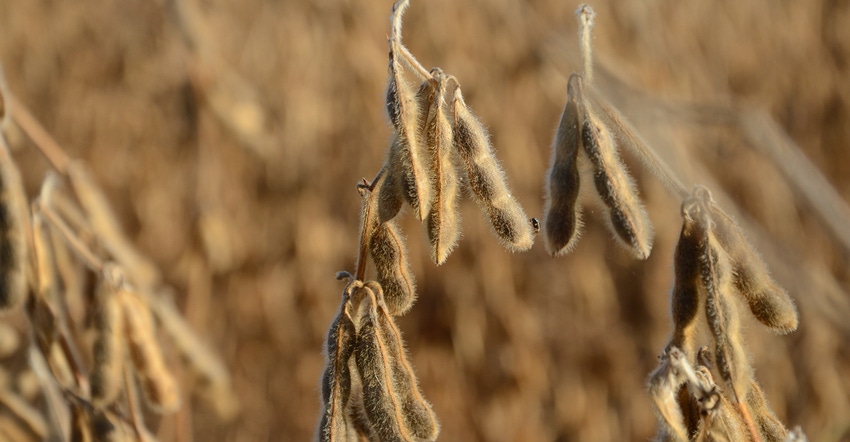March 25, 2020

Just how might high-end big data analytics and in-depth crop genetic information look in the seed bag? That's a question that Benson Hill Seeds will be answering in 2021, when the first 20,000 acres of a new ultra-high-protein soybean will be planted for the market. Benson Hill created the new seed company that launched in late 2019, and is built from an acquisition of eMerge Genetics and Benson Hill, a crop improvement company.
“The soy protein market is of significant interest as a major ingredient in new food systems including alternative plant-based meats,” says Matt Crisp, CEO and cofounder of Benson Hill. Soy protein concentrate (SPC) is an increasingly popular product, but where does an ultra-high-protein soybean fit in?
Today, SPC is above 60% protein, well above the natural protein available from conventional seed. To attain that higher level, soybeans are first crushed, and then put through an added process that requires energy and water to concentrate protein levels.
Crisp explains that by using analysis of the natural genetic potential of the soybean, Benson Hill was able to boost the protein level in the soybean, so that after the first crush process it achieves the desired protein level of SPC. That means buyers can obtain a plant-based protein that comes with a little less “environmental baggage” And in these days of food companies evaluating their entire production process, he notes this product offers an advantage.
He notes that by being able to skip the secondary processing step, it’s possible to save both on energy and water used in creation of SPC, which reduces the environmental footprint of the product. And it lowers the processing cost as well.
1st year for soybean acreage
The opening season for the new soybean will be 20,000 acres predominantly in the Iowa, Illinois and Indiana region, which is the key maturity for these soybeans now. Crisp acknowledges that environment does play a role in protein content, and company developers are looking at the issue.
“The environment still has a role in protein content,” he says. “It’s really promising that we’ve got a population of lines that display this performance in the growing region. We’re working aggressively to breed and [move the traits] into more maturity zones.”
The development of this line of soybeans happened relatively quickly. Benson Hill acquired eMerge Genetics, which has hundreds of specialty lines, and it was late last year when the company completed the analysis and bred a commercially viable elite germplasm. Work continues on the product, but the company plans on that initial planting next season.
Benson Hill has relationships with ingredient suppliers and new food system innovators that are working with the company.
Paying soybean producers
Crisp shies away from using the phrase “premium” when discussing the economics of the new soybean line. “What we anticipate is that we will be able to share this value creation with both the grower as well as the user, and still have enough value to sustain the business operations around it,” he says. “It’s a beautiful thing to create this kind of value at the genetic level to benefit the grower and the consumer and everyone in between,” he says.
Farmers raising the soybeans will be working with a closed, identity-preserved system to track these ultra-high-protein soybeans from farm to end user. Crisp points out Benson Hill is talking with many potential buyers now who see the value of this kind of protein source.
“We’ll supply the seed, which the farmer will buy; and we won’t be charging some outlandish premium, but where the grower realizes the economic impact is on the back end. They’re fulfilling a contract to supply their harvest,” he says. Crisp notes that the company is in talks with several potential buyers for the product. He adds that the soybeans produce at commercial-level yields, so growers aren’t taking a hit on bushels per acre.
For more information, visit bensonhill.com.
About the Author(s)
You May Also Like






